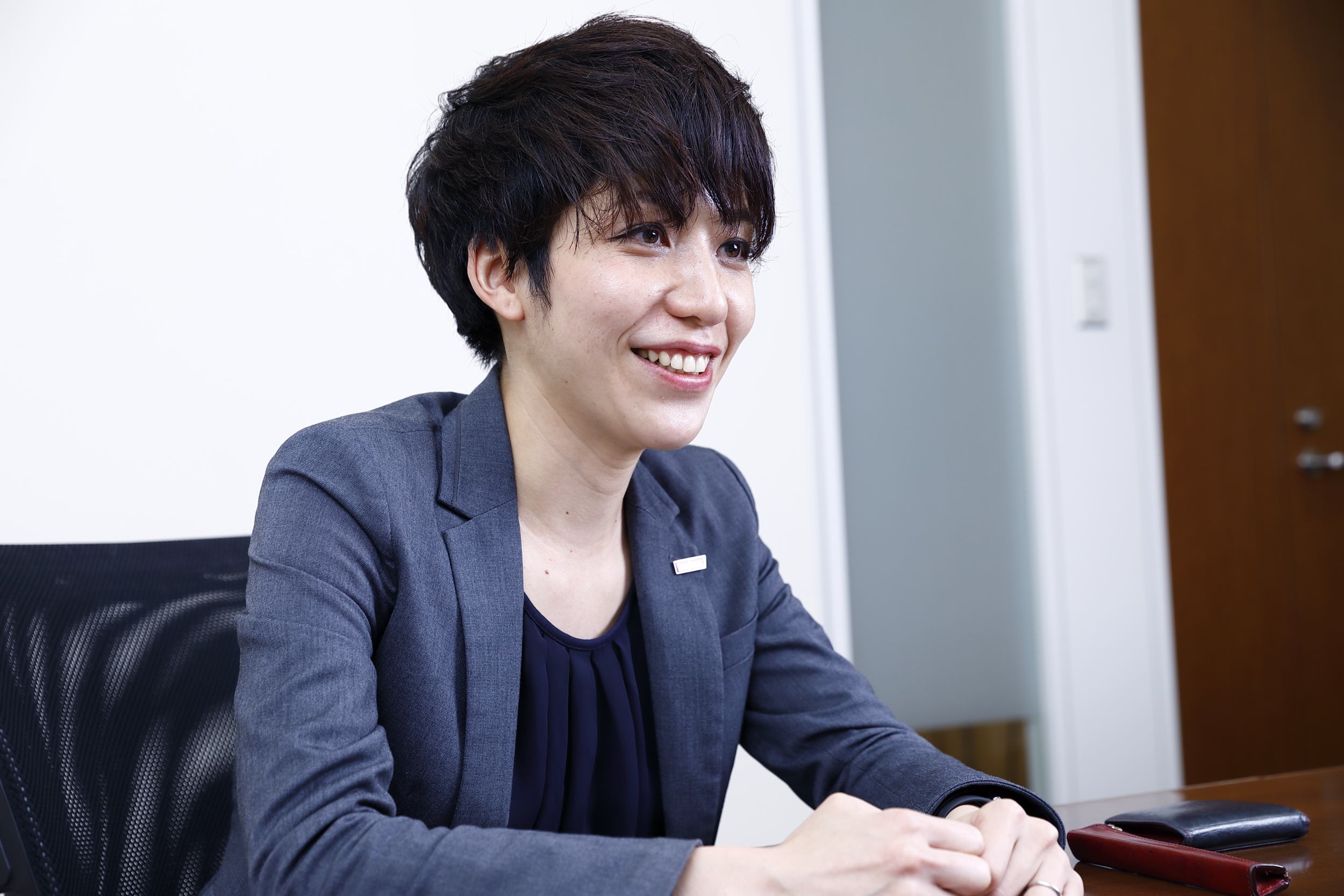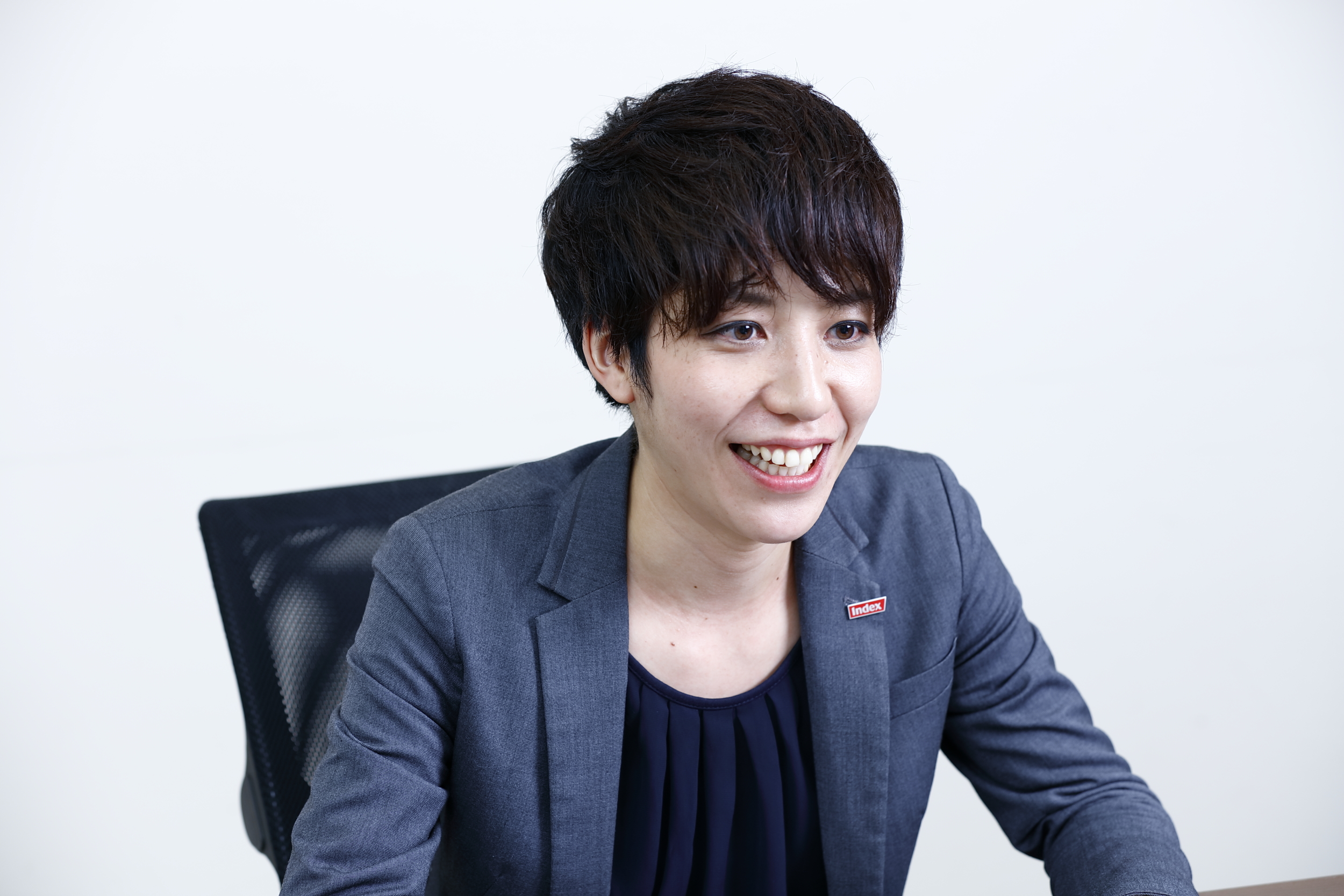INTERVIEW
Airi IKEDO
Index Strategy
Director and COO
How I went from having no knowledge of architecture or PPP to winning a MoU for a highway in Ghana within 8 months of joining the company
Index Consulting signed one MoU (Memorandum of Understanding) with the Ministry of Roads and Highways of the Republic of Ghana in Africa in September 2019. The MoU is to investigate the possibility of proceeding with the maintenance and construction of new toll roads in Ghana through a public-private partnership (PPP) approach. Subsequently, the Ghana project was adopted as a preparatory study for cooperation (PPP infrastructure project) by the Japan International Cooperation Agency (JICA).
The Ghana toll road PPP project is still in the preliminary study stage, but there have been no cases of Japanese companies participating in PPP projects on toll roads overseas. If a consortium led by Japanese companies can win a contract for a toll road PPP project after passing the feasibility study (FS), it will surely be a landmark case in the history of PPP in Japan.
One person who played a very important role in this basic agreement with the Ghanaian government is Airi Ikedo, who is a director at Index Strategy. She joined the company in January 2019 and has never been involved in a PPP project before. It was her enthusiasm and support from the company that made this big job possible for Ms. Ikedo. We asked Ms. Ikedo to give us an overview of the Ghana toll road PPP and why she joined Index Consulting.
 Please tell us about your agreement with the government of Ghana.
Please tell us about your agreement with the government of Ghana. Index Consulting provides social infrastructure support in emerging and developing countries using the public-private partnership (PPP) approach. In this case, the agreement is that Index will take the lead in investigating whether there are any profitable routes for maintaining and constructing new highways and toll roads in Ghana that can be tackled by introducing private sector technologies and funds, and will promote the project.
If the preliminary study shows that the route is profitable, we will move on to the full-scale study, which will focus on the route and examine various issues such as traffic volume and legal risks. If there is still no problem, Index will act as the project manager and recruit companies that will participate in the operation of the project over a long period of time, such as 20 to 30 years, with the aim of acquiring the concession. Of course, in addition to maintenance and management, there is also the possibility that we will be involved in the widening of existing lines and the construction of new lines.
The Ghana feasibility study was selected by JICA as a preparatory study for cooperation, and we received a grant of 30 million yen. We have heard that it is rare for such a preliminary study to be adopted by JICA.
In the past, there have been about 70 projects that received JICA grants for preliminary studies of social infrastructure overseas, but only one of them resulted in an actual project. As the effectiveness of the subsidies came under scrutiny, JICA also began to scrutinize the contents of the projects more closely. I think the fact that this project was selected by JICA in such a situation means that the potential of the project was highly evaluated.
In the past, there have been about 70 projects that received JICA grants for preliminary studies of social infrastructure overseas, but only one of them resulted in an actual project. As the effectiveness of the subsidies came under scrutiny, JICA also began to scrutinize the contents of the projects more closely. I think the fact that this project was selected by JICA in such a situation means that the potential of the project was highly evaluated.
What kind of negotiations did you have with the Ghanaian government?
It originally started when I went to Ghana for a JAIDA (Japan Association for Infrastructure Development in Africa) event. At that time, I made connections with executives from the Ghanaian Ministry of Railways, Ministry of Finance, and Ministry of Highways, and told them that there was a possibility that a Japanese company would participate in a brownfield concession (a term that refers to the operation and widening of toll roads that are already in operation). There was not much response from them, but as we kept sending out information about the interest of Japanese companies and the support of the Ministry of Land, Infrastructure, Transport and Tourism, they seemed to sense our seriousness and began to provide us with a "short list" of expressways.
It originally started when I went to Ghana for a JAIDA (Japan Association for Infrastructure Development in Africa) event. At that time, I made connections with executives from the Ghanaian Ministry of Railways, Ministry of Finance, and Ministry of Highways, and told them that there was a possibility that a Japanese company would participate in a brownfield concession (a term that refers to the operation and widening of toll roads that are already in operation). There was not much response from them, but as we kept sending out information about the interest of Japanese companies and the support of the Ministry of Land, Infrastructure, Transport and Tourism, they seemed to sense our seriousness and began to provide us with a "short list" of expressways.
 What is a short list?
What is a short list? A short list is a compiled list of promising routes that are likely to be profitable. Usually, the governments of emerging and developing countries compile a list that can be put out to PPPs. This is usually referred to as the "long list. However, the long list is a mixed bag and includes many unprofitable PPP projects and public works projects that local companies have not undertaken. Overseas infrastructure projects are difficult even by themselves. But if you start working on a project that is not profitable in the first place, you will not be able to succeed. Therefore, we need to negotiate with the other government to get them to offer us a project with better conditions. This is the short list.
Is Ms. Ikedo's role to make connections with governments and extract promising projects?
Yes, for now. After this, we will go through preliminary and full-scale surveys, and when we get to the stage where we can actually proceed with the project, we will form a consortium that will participate in the project, including construction companies and financial institutions. I don't know if I will do this, but if the project actually starts to move forward, I will create an SPC (Special Purpose Company) in the country and be involved in the actual operation.
What other projects are you working on besides Ghana?
One of the promising projects is an expressway in Vietnam. This is a 55-kilometer-long expressway connecting Ho Chi Minh City with the newly built Long Thanh International Airport in Ho Chi Minh City, Vietnam. This route is already managed and operated by the Vietnam Expressway Corporation, but in anticipation of increased demand due to the construction of Long Thanh International Airport, the Vietnamese government is planning to widen it to eight lanes. In order to cover the construction cost for the widening, the right to operate the expressway will be sold to a consortium of private companies for a certain period of time.
The toll road project in the Philippines is one of the projects we are looking forward to. San Miguel Corporation, a major conglomerate in the Philippines, has a plan to widen and extend the expressway in the Manila metropolitan area. This is a project in which Japanese companies will participate in a consortium. In addition to this, there are many other potential projects in Peru, India, and Texas in the United States. The biggest problem is that we don't have enough internal resources.
You are currently carving out a career as a PPP creator, but what did you do in your previous job?
My previous job was at a water supply company in Japan. I joined the company after graduating as a sales representative, and when they decided to expand into Singapore, I joined the launch of their Singapore office. However, as the company was in the process of going public, they decided to withdraw from the Singapore business, and I decided to change jobs.
My previous job was at a water supply company in Japan. I joined the company after graduating as a sales representative, and when they decided to expand into Singapore, I joined the launch of their Singapore office. However, as the company was in the process of going public, they decided to withdraw from the Singapore business, and I decided to change jobs.
What made you choose Index Consulting out of all those companies?
It was all about CEO Uemura, who agreed with my dream.
I lived in Indonesia during my elementary school years and in the Philippines during my junior and senior high school years, and I wanted to work in a field that would contribute to society, such as poverty alleviation in developing countries. PPP is an initiative to improve the infrastructure of life in emerging and developing countries using private funds and technology. I did not know much about social infrastructure PPPs, but I wanted to contribute to emerging and developing countries through PPP projects.
It was all about CEO Uemura, who agreed with my dream.
I lived in Indonesia during my elementary school years and in the Philippines during my junior and senior high school years, and I wanted to work in a field that would contribute to society, such as poverty alleviation in developing countries. PPP is an initiative to improve the infrastructure of life in emerging and developing countries using private funds and technology. I did not know much about social infrastructure PPPs, but I wanted to contribute to emerging and developing countries through PPP projects.
When I talked about these dreams at the CEO's meeting, CEO Uemura said, "Our dreams are the same.
I have talked about supporting poverty in developing countries in the past, but most of the time I was told, "That's the work of NGOs," and that was the end of it. It is true that poverty support may be a world that is difficult to connect with business, but I wanted to realize both business and social contribution, not NGOs. With social infrastructure PPPs, this can be achieved. CEO Uemura also took it head on. I thought, "This is the only way to go."
I have talked about supporting poverty in developing countries in the past, but most of the time I was told, "That's the work of NGOs," and that was the end of it. It is true that poverty support may be a world that is difficult to connect with business, but I wanted to realize both business and social contribution, not NGOs. With social infrastructure PPPs, this can be achieved. CEO Uemura also took it head on. I thought, "This is the only way to go."
 I don't think I had much business knowledge about social infrastructure PPPs.
I don't think I had much business knowledge about social infrastructure PPPs.*As of February 2020
INTERVIEW
Please click here to check how to apply and selection process.
ENTRY